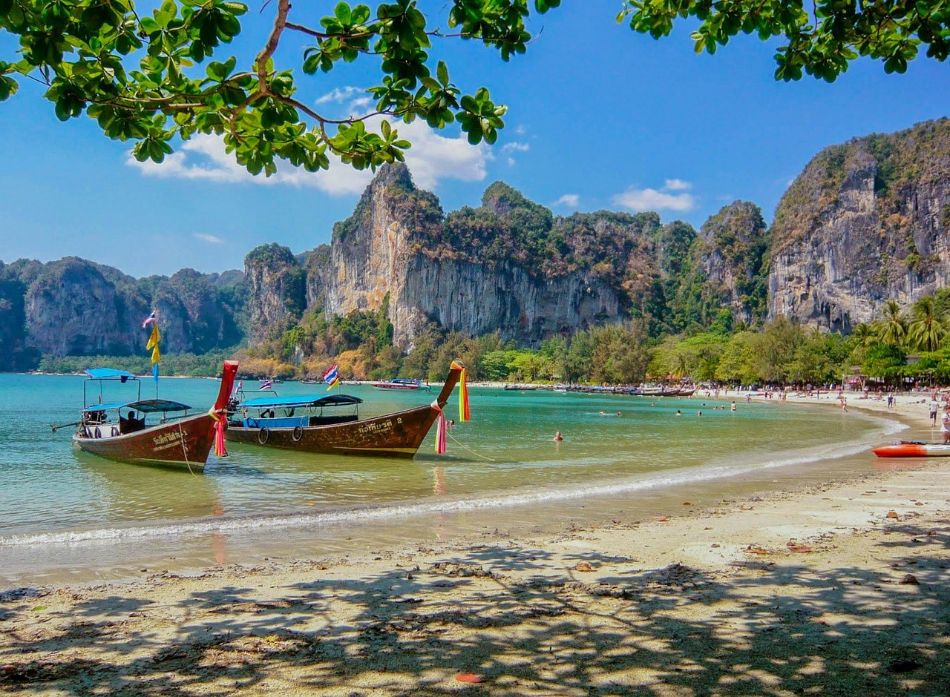Thailand’s former PM Thaksin Shinawatra, while speaking at a conference titled “Unlocking Thailand’s Future,” mooted the idea of Thailand starting a Golden Visa which would aim to attract 600000 wealthy foreigners. These individuals could contribute $1 million in lieu of residency and property. While commenting on the proposal, the former Thai PM said: “It will drive GDP growth, reduce public debt, spur domestic consumption.”
The funds arising out of this scheme could be used for the welfare of Thai citizens, according to the former PM. In the past decade, the ASEAN nation’s economic growth has dipped significantly (hovering around 2%). For 2025, some economic forecasts have projected the economic growth of Thailand could slip to less than 2%. One of the key reasons for the slowdown has been the drop in tourist arrivals. In 2025, there has been an over 5% drop year on year for the period between January and July (one of the key reasons for this dip in tourist arrivals is the significant decrease in Chinese tourists). The Thai economy is heavily dependent upon tourism and along with US tariffs, this drop in tourists could impact the economy. Earlier this month, US President Donald Trump had announced that tariffs of 36% on Thai exports to the US would come into force from August 1, 2025.
Other ASEAN nations
Another ASEAN nation – Vietnam — has announced that it will be starting its Golden Visa. Vietnam’s Golden Visa will not be targeted at attracting High Networth Individuals (HNIs) who invest in the country, but also include individuals with skills and qualifications. For individuals with specific skills, Vietnam has introduced a 5-year talent visa. Logistically, Vietnam’s visa is simpler. Apart from Investors and professionals, Vietnam also seeks to attract long-term visitors – especially retirees.
Thailand and Indonesia offer retirement visas which are very popular amongst Western expats. Indonesia introduced a Golden Visa in 2024 with a focus on attracting Investors. Like the Golden Visa offered by Vietnam, Indonesia also has categories especially aimed at attracting global talent as well as individuals who want to stay in the country without investing formally.
Gulf countries offering Golden Visas
In the Middle East, while UAE was the first to introduce a Golden Visa, Saudi Arabia launched the Green Card in 2019 and Bahrain announced its Golden Visa in 2022, which was cheaper than the one offered by UAE. While the UAE’s Golden Visa includes several categories, even those offered by Bahrain and Saudi Arabia seek to attract researchers and individuals with special talent in the arts. For the time being, the UAE may be more attractive given its location and the fact that it has emerged as a global economic hub – though Saudi Arabia is also taking steps not just to attract investors, but also professionals.
In a transformed global landscape where securing residency and citizenship in Anglosphere countries is becoming tougher by the day, it is the countries of the ‘Global South’ that are making efforts to attract not only the wealthy but also individuals with specialized skills and qualifications. The expansion of categories by countries aligns with their goal of attracting talent which can contribute specifically towards certain sectors – especially technology – and in many cases, there are categories for artists and creative individuals.
The preference for a Golden Visa will depend upon the overall preference of an individual. While those keen to harness the visa for their business purposes may prefer the UAE Golden Visa, those seeking a relaxed lifestyle may go for Golden Visas offered by certain ASEAN countries. As mentioned earlier, some of the visas offered by Indonesia and Thailand are already popular among expats. With new categories such as the ‘Digital Nomad Visa’ and Freelancer Visas emerging, it remains to be seen how the Golden Visa will maintain its relevance. In conclusion, those looking for opportunities to work or reside abroad are not restricted. While it could be argued that the Golden Visa is skewed towards entrepreneurs and is costly, several countries are beginning to come up with more affordable options. Countries will need to keep tweaking rules and think innovatively; a rigid approach will not work. If well thought out, the Golden Visa policies will not just benefit in terms of drawing FDI, or giving a boost to tourism but also research and innovation in these countries. The ‘Golden Visa’ could thus be an important component of the ‘Smart Power’ of countries.
[Image by Rémi Deligeon from Pixabay]
The views and opinions expressed in this article are those of the author.

Tridivesh Singh Maini is a New Delhi based analyst interested in Punjab-Punjab linkages as well as Partition Studies. Maini co-authored ‘Humanity Amidst Insanity: Hope During and After the Indo-Pak Partition’ (New Delhi: UBSPD, 2008) with Tahir Malik and Ali Farooq Malik. He can be reached at tridivesh80@hotmail.com.

